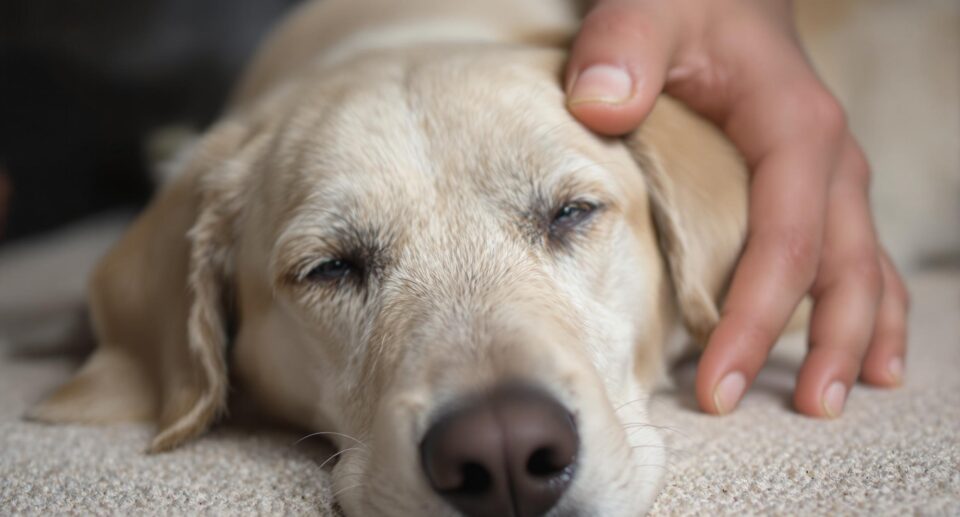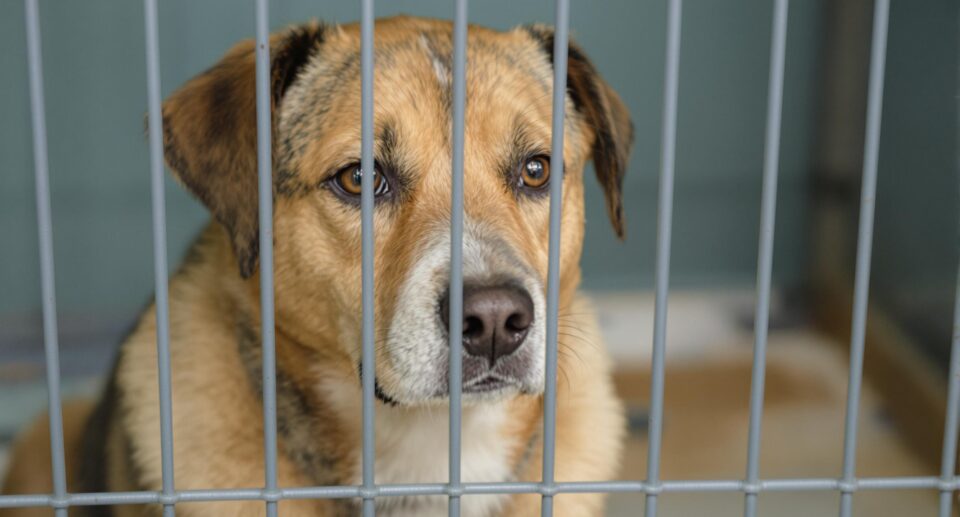Dog Coughing: Causes, Symptoms & Treatment

Key takeaways
Figuring out why your dog is coughing is very important. Sometimes it is just dust or pollen and other times it could be something more serious. The sooner you understand the cause, the better you can help.
Pay attention to the sound and timing of your dog’s cough. It can help you and your vet figure out what is going on.
Stay on top of prevention with vaccines, good air quality, and regular checkups, especially during cold or allergy seasons.
Coughing is not something you usually associate with dogs, so when it starts, it can throw you off. Maybe it is just a little throat clearing here and there. Maybe it sounds like a goose honk or comes out of nowhere in the middle of the night. Either way, it is not always easy to tell what is going on.
This guide is here to help you make sense of what a cough can mean, how to spot red flags, and what steps to take to help your dog feel better. And when you need extra support, PetHealthMD offers practical, research based resources to guide you through it all.
Why Dogs Cough
Not every cough means something serious, but it is still helpful to know what could be behind it. Here are some of the most common reasons your dog might be coughing:
Upper respiratory infections Dry, persistent coughs often come from kennel cough. Dogs can pick these up in places like boarding facilities, parks, or doggy daycares. Most pups start feeling better in a week or two with rest and basic care.
Tracheal collapse Small breeds are more likely to suffer from this condition, which causes a cough that sounds like a goose honk. It is usually a long term issue, but your vet can help manage it.
Environmental triggers Irritants like smoke, dust, or strong odors can sometimes cause coughing, especially in dogs with sensitive airways.
Allergies Pollen, mold, and household dust can all play a role. If your dog’s coughing seems to come and go with the seasons, allergies could be the reason.
Heart disease Coughing can sometimes point to heart issues, especially in older or large breed dogs. If the cough happens more at night or after activity, or if your dog seems unusually tired, it is a good idea to talk to your vet.
For dogs with respiratory concerns, explore supportive products in the Breathing & Respiratory Care category at 1800PetMeds.
What Different Dog Coughs Sound Like
Coughing can sound different depending on the cause, and sometimes it is the only symptom your dog shows. This section breaks down common types of coughs and clears up a few misunderstandings that can make it harder to know when to take action.
How a cough sounds and when it happens can give your vet helpful clues. Here are some common patterns and what they might mean:
Dry, hacking cough Sounds like they are clearing their throat, often a sign of kennel cough.
Wet or congested cough This usually comes with sneezing or a runny nose and is common in upper respiratory infections.
Honking cough A sharp, goose like noise that might point to tracheal collapse.
Cough after exercise Especially if your dog tires quickly or seems short of breath.
Cough when lying down or at night This can sometimes be a sign of heart related issues.
Keep a short log of what kind of cough your dog has, when it happens, and how they seem afterward. This info can be helpful at the vet.
Common Misconceptions About Dog Coughs
It is easy to shrug off a cough, especially if your dog is acting like its usual self. But a few common mix ups can make it harder to know when it is time to take a closer look.
“It is just a cough, nothing serious” Even if your dog seems okay otherwise, a cough that sticks around is still worth checking out.
“Only dogs in kennels get sick” Respiratory bugs can spread anywhere dogs socialize, such as walks, dog parks, playdates, or groomers.
“Vaccines prevent all coughing illnesses” Vaccines help, but they do not cover everything. Irritants, allergies, and other health issues can still cause symptoms.
Making Your Dog Feel Better
Once you have a sense of what is behind the cough, it is all about keeping your dog as comfortable as possible while they bounce back. Sometimes a little rest is all it takes. Other times, you might need to adjust routines or check in with your vet.
Caring for a Cough
Most mild coughs go away on their own, but there are simple things you can do to help your dog feel more comfortable:
Use a humidifier or sit with them in a steamy bathroom to help open up their airways.
Create a quiet, cozy spot for rest, somewhere warm and away from foot traffic or loud sounds.
Switch to a harness instead of a collar so there is less pressure on their throat.
Make sure they stay hydrated and keep their space free of smoke or heavy scents.
If your dog is not improving after a few days or their symptoms are getting worse, your vet might recommend medication, more testing, or a long term plan.
Supporting supplies can be found in the respiratory and breathing care section at 1800PetMeds.
Keeping Coughs From Coming Back
Once your dog is feeling better, you can lower the chances of coughing returning with simple habits:
Stay up to date on vaccines like DA2PPC and Bordetella.
Use air purifiers and open windows when possible.
Run a humidifier during dry seasons.
Avoid irritants like cigarette smoke, harsh cleaning products, and heavy scents.
Be mindful in social spaces, especially during outbreaks.
Feed a balanced diet and ensure gentle exercise and regular checkups.
FAQs for Dog Parents
When should I call the vet?
If your dog’s cough lasts more than a few days, gets worse, or comes with low energy, appetite loss, or breathing issues, it is time to reach out.
Can my dog’s cough spread to others?
Yes, especially if it is something like kennel cough. Until your vet gives the okay, keep your dog away from shared bowls, toys, and other pups.
How can I help at home?
Try a humidifier, give them a quiet place to relax, and keep their space free of irritants.
What will the vet do?
They will listen to your dog’s lungs, ask about the cough’s pattern, and, if necessary, suggest X rays or bloodwork.
Do some dogs cough more than others?
Yes. Flat faced breeds, small dogs, and older large breed dogs may be more prone to respiratory or heart related coughing.
Helping Your Dog Breathe Easier
It can be hard to tell what your dog’s coughing means, but keeping an eye on things and knowing when to check in can make a real difference. Sometimes a little care at home does the trick. Other times, the support of your vet helps.
For ongoing support, explore the full range of health products available from 1800PetMeds.





